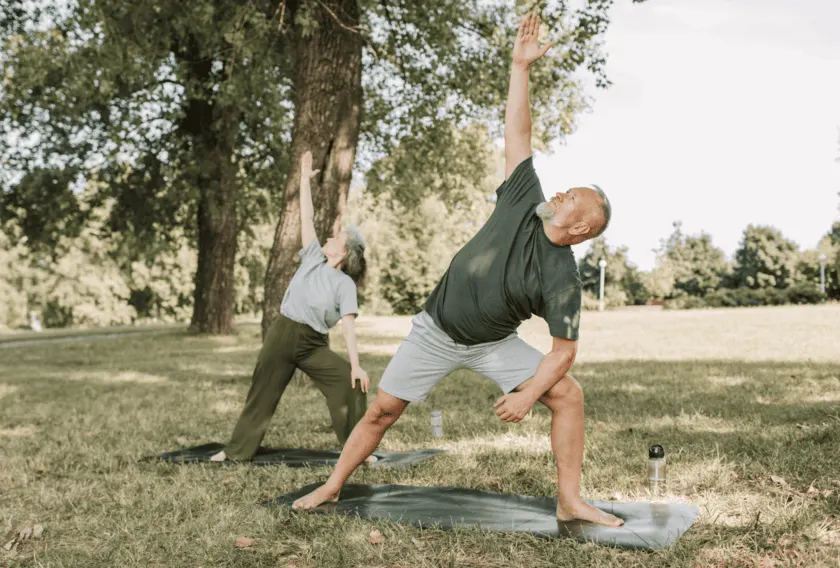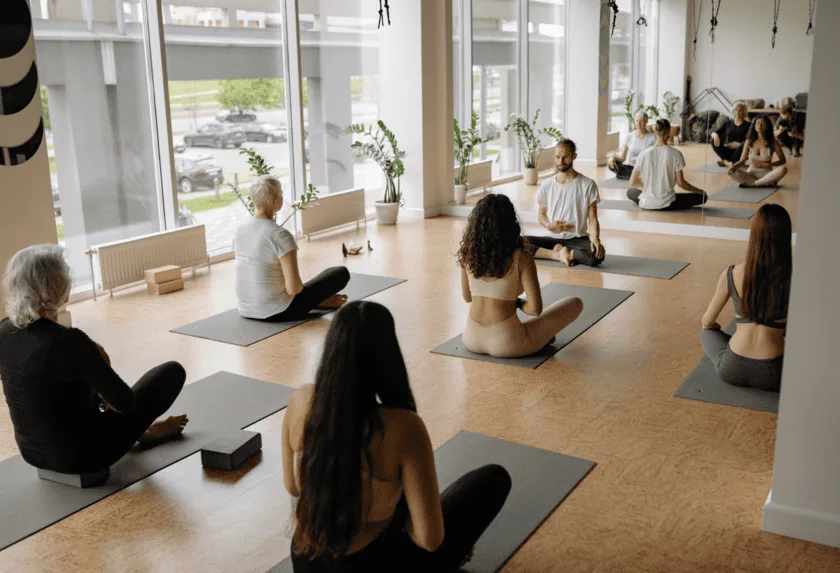Why exercising matters in a busy life
In the whirlwind of modern life, where every minute feels accounted for, exercise often gets pushed to the bottom of the to-do list. Yet, moving your body is not just a luxury—it’s a necessity. It’s not about finding the perfect hour-long workout or becoming a marathon runner overnight. Instead, it’s about integrating small, intentional movements into your day to boost energy, reduce stress, and improve overall well-being. Exercise doesn’t have to disrupt your routine; it can become a seamless part of it.
How exercise fits into your routine
The idea of carving out time for exercise can feel daunting, especially when your schedule is already packed. But the truth is, you don’t need hours to reap the benefits. Even short bursts of activity can make a difference. Whether it’s a 10-minute walk during lunch, stretching while watching TV, or taking the stairs instead of the elevator, these moments add up. Think of movement as a way to enhance your day, not disrupt it. Exercise isn’t something you have to schedule—it’s something you can weave into the fabric of your daily life.
- Morning stretch: Start your day with a few minutes of gentle stretching to wake up your body.
- Lunchtime walk: Use your break to step outside and get some fresh air.
- Evening unwind: Practice yoga or light stretching before bed to relax your mind and muscles.
Small steps to make it sustainable
When it comes to fitness, consistency is key. Rather than aiming for perfection, focus on progress. Start small and build from there. Choose activities you enjoy, so it feels less like a chore and more like a treat. Remember, this isn’t about drastic changes—it’s about creating habits that stick. Here are a few ideas to help you get started:
- Set realistic goals: Start with 10 minutes a day and gradually increase as your routine allows.
- Find joy in movement: Dance, hike, or play a sport—whatever makes you happy.
- Use what you have: No gym? No problem. Bodyweight exercises or household items can be just as effective.

Exercise doesn’t have to be complicated or time-consuming. By taking small, manageable steps, you can create a sustainable routine that fits seamlessly into your busy life. The goal is to move more, feel better, and create a habit that lasts—not perfection.
Benefit 1: Boosts Physical Health
Exercise is one of the most effective ways to enhance your physical health. It’s not just about looking fit; it’s about feeling strong, energized, and capable of tackling life’s demands. Regular physical activity can transform your body in ways that go far beyond aesthetics. Let’s explore how it improves cardiovascular health, strengthens muscles and bones, and boosts your energy levels.
Improves Cardiovascular Health
Your heart is a muscle, and like any muscle, it thrives when challenged. Engaging in activities like brisk walking, jogging, or cycling increases your heart rate, improving blood circulation and oxygen delivery throughout your body. Over time, this strengthens your heart, reduces the risk of heart disease, and helps maintain healthy blood pressure levels. Even small amounts of daily exercise can make a significant difference.
Strengthens Muscles and Bones
Regular exercise, especially strength training, builds and maintains muscle mass, which is crucial for overall mobility and balance. Weight-bearing exercises like lifting weights or doing resistance workouts also promote bone density, reducing the risk of osteoporosis and fractures as you age. Whether it’s carrying groceries or climbing stairs, stronger muscles and bones make everyday tasks easier and safer.
Enhances Energy Levels
Feeling sluggish? Exercise can be your natural energy booster. Physical activity stimulates the production of endorphins, the body’s feel-good hormones, and improves your body’s efficiency in using oxygen and nutrients. Over time, this leads to increased stamina and vitality, helping you stay active and alert throughout the day. Even a short walk or stretching session can reignite your energy when you’re feeling drained.
Benefit 2: Improves mental clarity and focus
Reduces brain fog
One of the most immediate benefits of regular exercise is its ability to reduce brain fog. Physical activity increases blood flow to the brain, delivering essential oxygen and nutrients that help clear away mental clutter. This means you can think more clearly and feel more alert throughout the day.
Enhances productivity
When your mind is sharp, your productivity naturally improves. Exercise stimulates the release of neurotransmitters like dopamine and serotonin, which enhance focus and motivation. Whether you’re tackling a work project or managing daily chores, you’ll find that tasks become easier and more enjoyable.
Promotes better decision-making
Exercise also plays a crucial role in promoting better decision-making. By reducing stress and improving cognitive function, it allows you to approach problems with a calm and rational mindset. This clarity can lead to more thoughtful and effective choices in both personal and professional aspects of your life.
Benefit 3: Elevates Mood and Emotional Well-Being
In the whirlwind of daily responsibilities, emotional well-being often takes a backseat—yet it’s the foundation for resilience, joy, and a fulfilling life. Exercise isn’t just about physical transformation; it’s a powerful mood booster that nurtures your mind and spirit. Whether you’re feeling drained, anxious, or simply in need of a lift, movement can be your gentle, reliable ally.

Releases Endorphins: Your Natural Happiness Chemicals
Ever heard of the “runner’s high”? That euphoric post-workout glow isn’t a myth—it’s science. Physical activity triggers the release of endorphins, your body’s built-in mood enhancers. These neurotransmitters:
- Reduce pain perception (like a natural painkiller)
- Create feelings of pleasure and contentment
- Help combat feelings of fatigue or low motivation
You don’t need an intense workout to feel the effects. Even a 10-minute walk or a short dance session can spark this biochemical shift.
Reduces Stress and Anxiety
When stress feels overwhelming, exercise acts as a reset button for your nervous system. Here’s how:
- Cortisol regulation: Movement helps balance stress hormones, preventing chronic tension.
- Mindful distraction: Focusing on your body’s rhythm interrupts cyclical worries.
- Muscle relaxation: Physical exertion releases pent-up tension, easing physical symptoms of anxiety.
For an extra calming effect, pair movement with nature (like walking in a park) or deep breathing—a double dose of serenity.
Builds Self-Confidence Through Small Wins
Struggling with self-doubt? Exercise cultivates confidence in subtle but profound ways:
- Progress over perfection: Each workout, no matter how small, reinforces your capability.
- Body appreciation: Shifting focus from aesthetics to strength or endurance fosters self-respect.
- Routine as empowerment: Showing up for yourself builds trust in your commitment.
“As I moved, I realized my strength was greater than my anxiety. Each step was a way to renew my energy and confidence.”
Remember: Emotional benefits often appear before physical changes. If you’re waiting for visible results to feel motivated, try tuning into the mental shifts instead—the clarity after yoga, the calm post-swim, or the quiet pride of completing a workout on a tough day. Those moments are just as transformative.
Benefit 4: Fosters a sense of community and belonging
Group Activities and Social Connections
One of the most rewarding aspects of exercise is the opportunity to connect with others. Participating in group activities, whether it’s a yoga class, a running club, or a team sport, creates a shared experience that fosters camaraderie. These connections go beyond physical activity; they build relationships and provide a sense of belonging that can be incredibly motivating. When you’re surrounded by like-minded individuals who share your goals, the journey becomes less daunting and more enjoyable.
Shared Goals and Motivation
Exercising in a group setting often brings a collective energy that can boost your motivation. When you work toward a common goal with others, it’s easier to push through challenges and stay committed. Whether it’s training for a marathon, mastering a new dance routine, or simply staying consistent with your workouts, the shared purpose creates a sense of accountability. Knowing that others are counting on you can be a powerful incentive to show up and give your best effort.
Accountability and Support
One of the greatest benefits of exercising within a community is the built-in support system. When you’re part of a group, you’re not just accountable to yourself—you’re accountable to others as well. This mutual accountability helps you stay on track, even on days when motivation wanes. Additionally, the encouragement and empathy from your peers can make challenges feel more manageable. Knowing you’re not alone in your journey can make all the difference in maintaining long-term commitment.
“Alone we can do so little; together we can do so much.” – Helen Keller
- Group activities create a sense of belonging.
- Shared goals amplify motivation and perseverance.
- Mutual accountability helps maintain consistency.

Practical tips to start and maintain an exercise habit
Find activities you enjoy
One of the most effective ways to stick to an exercise routine is to choose activities that you genuinely enjoy. If jogging feels like a chore, try dancing, yoga, or even hiking. Exercise doesn’t have to be monotonous or painful—it can be something you look forward to. Experiment with different options until you find what resonates with you. Remember, the goal is to move your body in ways that feel good, not to force yourself into a rigid routine that drains your energy.
Set realistic goals
Starting with overly ambitious goals can lead to frustration and burnout. Instead set small, achievable targets that align with your current lifestyle. For example, aim to walk for 10 minutes a day or do a short home workout twice a week. As you build confidence and stamina, you can gradually increase the intensity and frequency. Realistic goals help you stay consistent and avoid the pressure of perfection.
Celebrate small wins
Every step forward deserves recognition. Whether it’s completing your first week of consistent exercise or feeling more energized after a workout, take a moment to celebrate these milestones. Acknowledging your progress reinforces positive behavior and keeps you motivated. Keep a journal or use an app to track your achievements—seeing how far you’ve come can be incredibly empowering.
Overcoming Common Challenges
Embarking on a journey toward better health and well-being is rarely a straight path. Life is full of twists, turns, and unexpected obstacles, and it’s natural to face challenges along the way. The good news? Overcoming these hurdles is not only possible but also an integral part of the process. Here’s how to navigate some of the most common challenges with grace and resilience:
Dealing with Time Constraints
One of the most frequent excuses—and valid reasons—for not prioritizing self-care is lack of time. Between work, family, and social commitments, it can feel nearly impossible to carve out moments for exercise, meditation, or even a healthy meal. But remember: self-care doesn’t have to be time-consuming. Small, consistent actions can lead to significant results. Here are some practical tips:
- Break it down: Instead of aiming for an hour at the gym, try 10-minute workouts at home.
- Double up: Combine activities, like listening to a meditation app during your commute.
- Prioritize: Reflect on what truly matters and allocate time accordingly, even if it’s just 5 minutes a day.
Remember, progress is progress, no matter how small. By integrating self-care into your daily routine, you’ll find it becomes less of a chore and more of a natural habit.
Staying Motivated During Setbacks
Setbacks are inevitable. Maybe you missed a workout, indulged in an unhealthy snack, or skipped your morning meditation. It’s easy to feel discouraged, but setbacks are not failures—they’re opportunities to learn and grow. Here’s how to stay motivated when things don’t go as planned:
- Be kind to yourself: Treat yourself with the same compassion you’d offer a friend.
- Reflect and adjust: Identify what caused the setback and brainstorm ways to overcome it next time.
- Celebrate small wins: Acknowledge every step forward, no matter how minor it seems.
Motivation ebbs and flows, but commitment to the process will keep you moving forward, even when the going gets tough.
Adapting to Your Unique Needs
There is no one-size-fits-all approach to health and well-being. What works for someone else might not work for you—and that’s okay. Your journey is uniquely yours. Here are some ways to tailor self-care to your individual needs:
- Listen to your body: Pay attention to how you feel physically, mentally, and emotionally.
- Experiment: Try different practices and routines to discover what resonates with you.
- Be flexible: Adjust your approach as your needs change over time.
Adapting to your unique needs ensures that your self-care routine is sustainable and fulfilling.
Conclusion
Overcoming challenges is not about perfection—it’s about persistence, adaptability, and self-compassion. Whether you’re battling time constraints, navigating setbacks, or finding what works best for you, remember that every step forward is a victory. You’re not alone in this journey, and every effort you make is worth celebrating. Keep going, one small step at a time.
Reference:
- Heart Foundation. (2024). Benefits of physical activity for your heart. https://www.heartfoundation.org.au/healthy-living/physical-activity/benefits-of-physical-activity
- Massini, D. A., Nedog, F. H., de Oliveira, T. P., Almeida, T. A. F., Santana, C. A. A., Neiva, C. M., Macedo, A. G., Castro, E. A., Espada, M. C., Santos, F. J., & Pessôa Filho, D. M. (2022). The Effect of Resistance Training on Bone Mineral Density in Older Adults: A Systematic Review and Meta-Analysis. Healthcare (Basel, Switzerland), 10(6), 1129. https://doi.org/10.3390/healthcare10061129
- Meeusen, R., & De Meirleir, K. (1995). Exercise and brain neurotransmission. Sports Medicine, 20(3), 160–188. https://doi.org/10.2165/00007256-199520030-00004
- Stillman, C. M., Cohen, J., Lehman, M. E., & Erickson, K. I. (2016). Mediators of physical activity on neurocognitive function: A review at multiple levels of analysis. Frontiers in Human Neuroscience, 10, 626. https://doi.org/10.3389/fnhum.2016.00626
- Gorrell, S., Shott, M. E., & Frank, G. K. W. (2022). Associations between aerobic exercise and dopamine-related reward-processing: Informing a model of human exercise engagement. Biological Psychology, 171, 108350.
https://www.sciencedirect.com/science/article/pii/S0301051122000928 - Stanford Lifestyle Medicine. (2025, April 23). How exercise balances cortisol levels. https://lifestylemedicine.stanford.edu/how-exercise-balances-cortisol-levels/





























